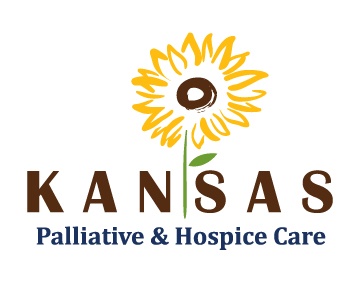November is a month filled with gratitude and remembrance, particularly for the compassionate care hospice and palliative care professionals provide. These extraordinary individuals devote their time and energy to providing comfort and solace to those facing life-limiting illnesses, bringing joy and relief to individuals and families alike.
This year’s Hospice & Palliative Care Month theme, “Courageous Conversations,” emphasizes the significance of open and honest communication in caregiving. Join us as we explore the history of this remarkable month and shed light on the current statistics and facts surrounding hospice care.
Origins of Hospice & Palliative Care Month
Hospice & Palliative Care Month has been observed for over 40 years, serving as a platform to recognize and acknowledge the efforts of hospice and palliative care professionals. Hospice & Palliative Care Month dates back to 1978, when President Jimmy Carter declared the first National Hospice Week in the United States. Due to the overwhelming response and recognition of the services provided by hospice care professionals, this observance was expanded to an entire month in 1984.
Since then, Hospice & Palliative Care Month has garnered attention worldwide, serving as a reminder to appreciate the compassionate care that hospice and palliative caregivers offer. It’s a time to honor and support those who dedicate their lives to improving the quality of life for individuals facing serious illnesses and their families.
2023 Theme: Courageous Conversations
At the heart of this year’s theme, “Courageous Conversations,” lies the belief that compassionate and open dialogue about end-of-life wishes is vital for individuals and their families. It can often be challenging to broach subjects surrounding illness, dying, and death. However, these courageous conversations provide an opportunity to express personal preferences, ensure dignity, and promote a sense of peace during times of uncertainty. By having these courageous conversations with our loved ones, we create a bond of trust that ensures our desires are respected, and our comfort is prioritized during our final journey.
Such conversations empower individuals and their families to make informed decisions about their care. They allow us to express our preferences for pain management, comfort measures, and spiritual and emotional support. By embracing Courageous Conversations, we can navigate the difficult decisions that arise, ensuring that our journey is guided by love, compassion, and dignity.
Hospice Facts: Shedding Light on Compassionate Care
As we reflect on the importance of Hospice & Palliative Care Month, it is enlightening to consider the recent hospice statistics that highlight the impact of these invaluable services:
- Access to Hospice Care: Over 1.7 million individuals in the United States receive hospice care each year. This number is projected to increase as more people recognize the benefits of hospice in enhancing the quality of life.
- Comfort and Pain Management: Hospice care focuses on providing comfort and managing pain, ensuring that individuals can live their remaining days with dignity and as little discomfort as possible. Hospice professionals are trained in specialized pain management techniques to address each patient’s unique needs.
- Comprehensive Services: Hospice care offers a holistic approach to care, catering not only to the physical needs but also addressing the emotional, spiritual, and social aspects of patients and their families. This comprehensive support is crucial for maintaining overall well-being and quality of life.
- Caregiver Support: Hospice care acknowledges the immense responsibility and emotional strain on caregivers. Therefore, it extends support to family members and loved ones through counseling, respite care, and bereavement services, ensuring they have the resources and guidance they need during challenging times.
- Choice and Dignity: Hospice care respects the individual’s right to choose their care while maintaining dignity and independence. It fosters an environment where patients have control over their lives, their final wishes are honored, and their voices are heard.
An Essential Community Service
Hospice care is an essential community service that offers compassionate care, support, and comfort to individuals with life-limiting illnesses and their families. It focuses on enhancing quality of life, managing symptoms, alleviating pain, and providing emotional and spiritual support during challenging times.
One of the fundamental principles of hospice care is the interdisciplinary approach, gathering medical professionals, caregivers, social workers, spiritual counselors, and bereavement specialists. Together, they form a compassionate team that addresses the physical, emotional, and spiritual needs of patients, ensuring their comfort and dignity until the end of life.
Hospice care is not about giving up hope; rather, it is about shifting the focus from curative treatment to improving the quality of life. It provides specialized care tailored to individual needs, promoting respect, compassion, and peace. Through pain management, emotional support, assistance with daily activities, and the provision of companionship, hospice care affirms each person’s inherent value and dignity.
Embracing Hospice & Palliative Care Month
During this Hospice & Palliative Care Month, let us recognize the extraordinary courage it takes to have these vital conversations and embrace the comfort and solace that can be found in hospice care. Together, we can foster a compassionate society that values open dialogue, supports individual autonomy, and ensures that every person’s end-of-life wishes are respected.
Take this opportunity to initiate courageous conversations within your own family and community. Discuss end-of-life preferences, wishes, and hopes in an atmosphere of love, empathy, and understanding. By doing so, we can create a culture where the journey towards the end of life is supported with grace and compassion.
As we embrace Hospice & Palliative Care Month and delve into Courageous Conversations, we celebrate the incredible impact of these services and recognize the compassionate professionals who dedicate themselves to offering comfort, support, and dignity during life’s most challenging moments.
Need help? Contact us at (913) 353-6525.


